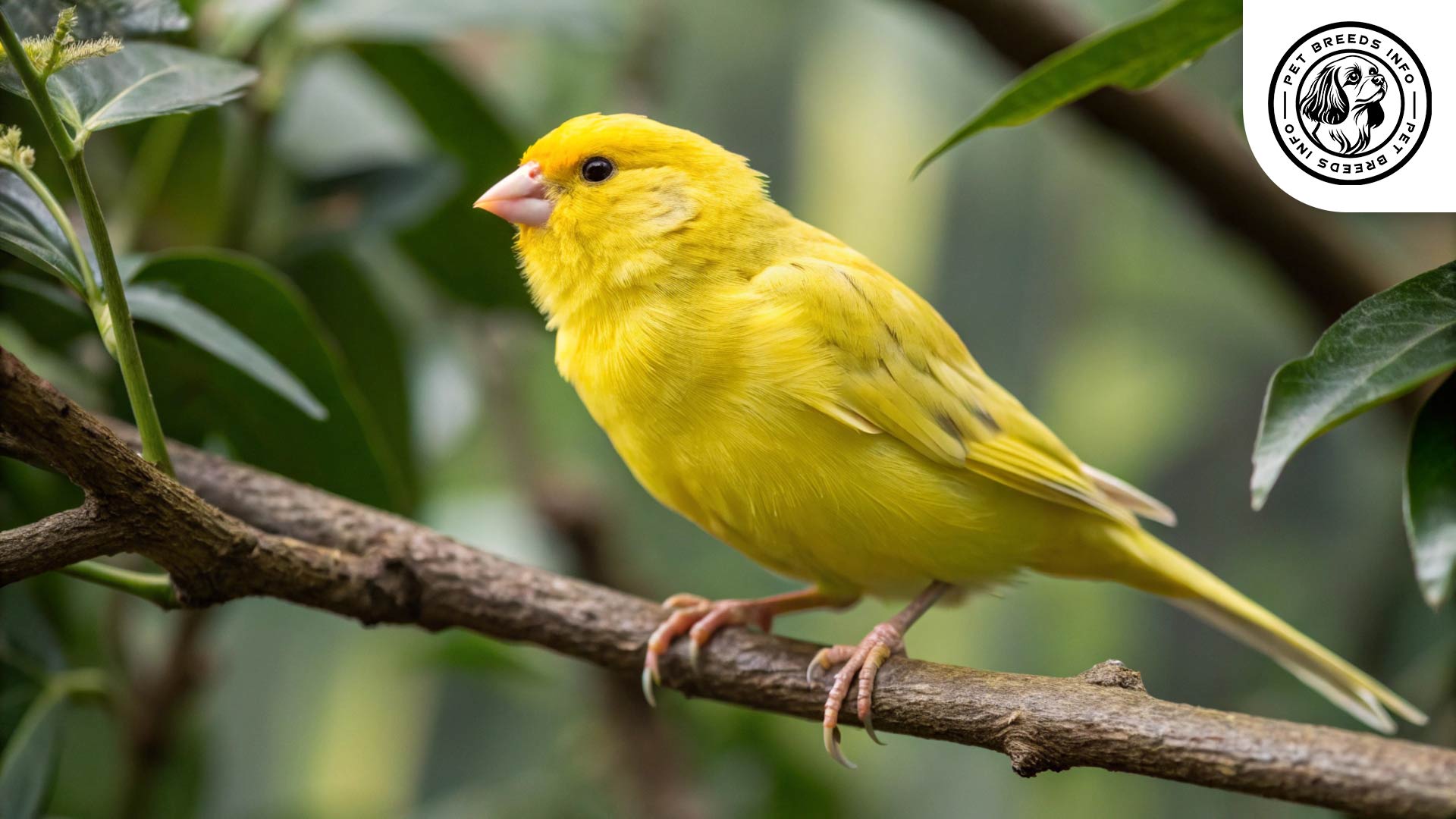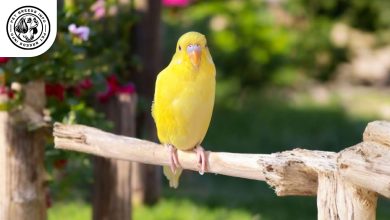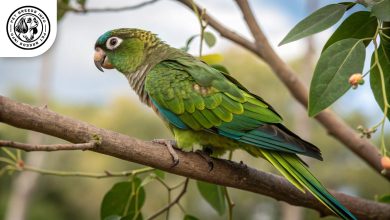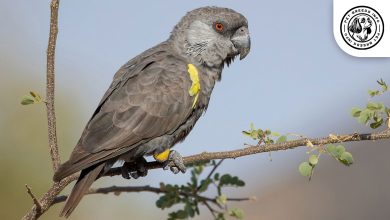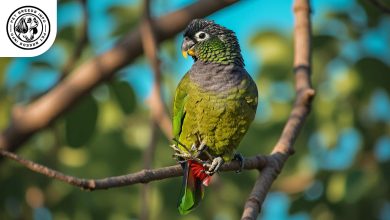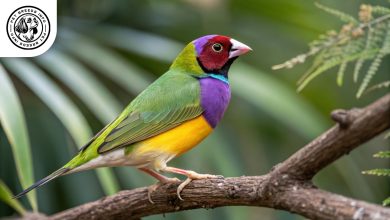Yellow Canary Bird: Personality, Lifespan, Food & Care
General Introduction of the Breed
The Yellow Canary (Serinus flaviventris) is a small songbird belonging to the finch family. It is also known as the Wild Canary and is native to southern Africa. Its popularity as a pet has grown due to its beautiful appearance and melodic singing ability.
Originally found in open woodlands and grasslands, the domestic canary was selectively bred from the wild Yellow Canary species, gaining recognition for its vibrant plumage and charming personality.
Table of Contents
| Common Name: | Yellow Canary, Wild Canary |
| Scientific Name: | Serinus flaviventris |
| Origin: | Southern Africa |
| Size: | 10 to 13 cm in length, 15 to 25 grams in weight |
| Lifespan: | Around 8 to 10 years (can live longer in optimal conditions) |
| Talking Ability: | Not typically known for talking; primarily valued for singing |
| Colors: | Primarily bright yellow, some individuals may have slight olive or greenish tones |
| Noise Level: | Moderate; known for melodious singing, especially by males |
| Social Behavior: | Cheerful and social; can coexist with other small, non-aggressive birds but prefer their own kind; can live happily alone |
Physical Characteristics
The Yellow Canary is a small bird, typically measuring between 10 to 13 cm in length and weighing around 15 to 25 grams. Its most striking feature is its bright yellow plumage, although some individuals may have slight olive or greenish tones.
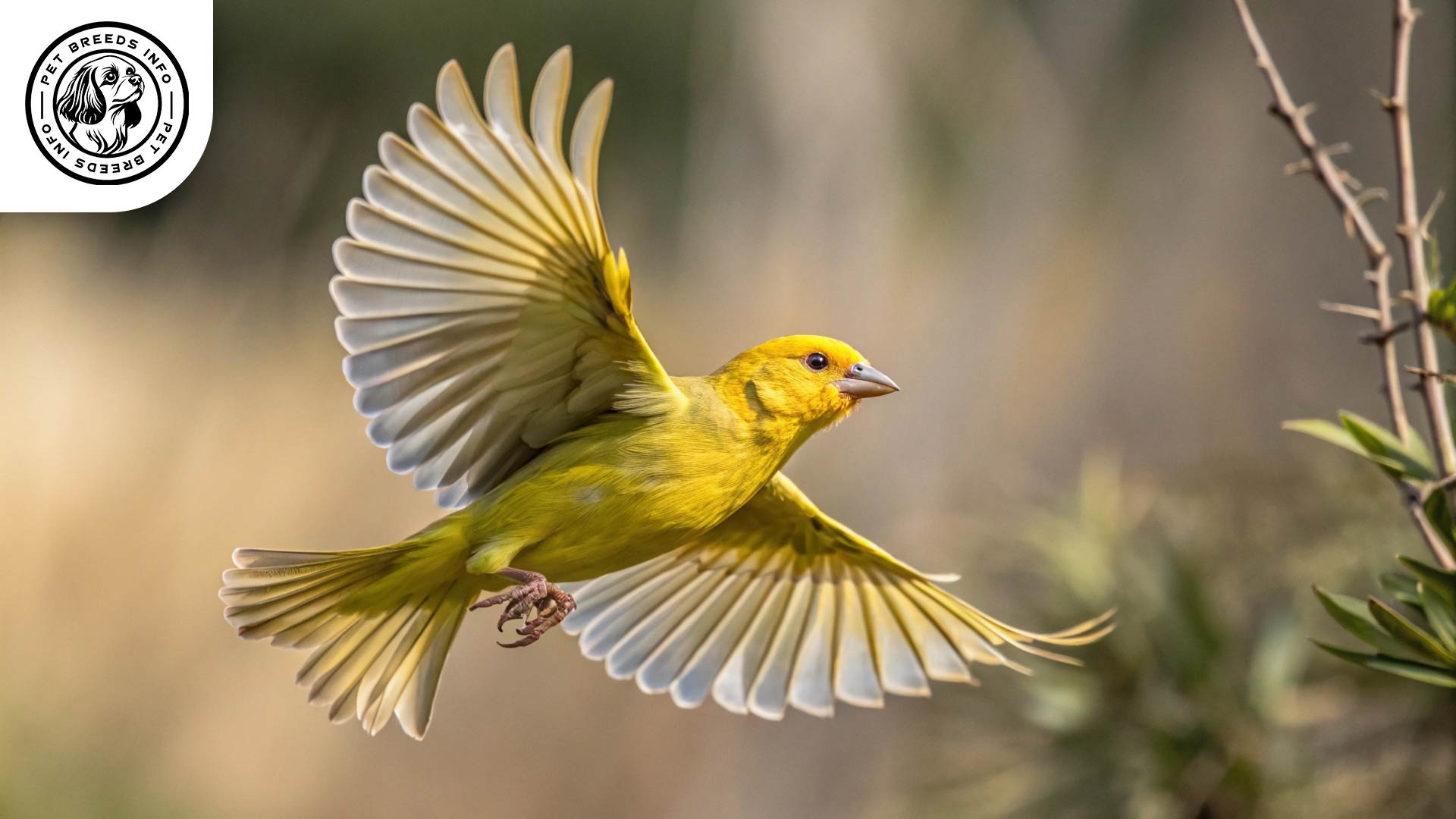
The bird’s eyes are small and dark, often appearing black. Its beak is short and conical, well-adapted for seed consumption. The Yellow Canary’s tail is moderately long and slightly forked, while its wings are rounded, allowing swift flight.
Read More: Senegal Parrot Bird
Personality and Temperament
The Yellow Canary is known for its cheerful and social disposition. It is an intelligent bird capable of learning simple tricks but is primarily admired for its melodious singing. Males are especially known for their strong singing voices.
This breed has a moderate energy level and enjoys flying within its cage or aviary. While canaries are not overly dependent on their owners, they do develop a level of familiarity and comfort with humans who care for them regularly.
Unlike parrots, canaries do not typically seek physical interaction but are content in their enclosure with other birds or alone. They can coexist with other small, non-aggressive birds but prefer their own kind.
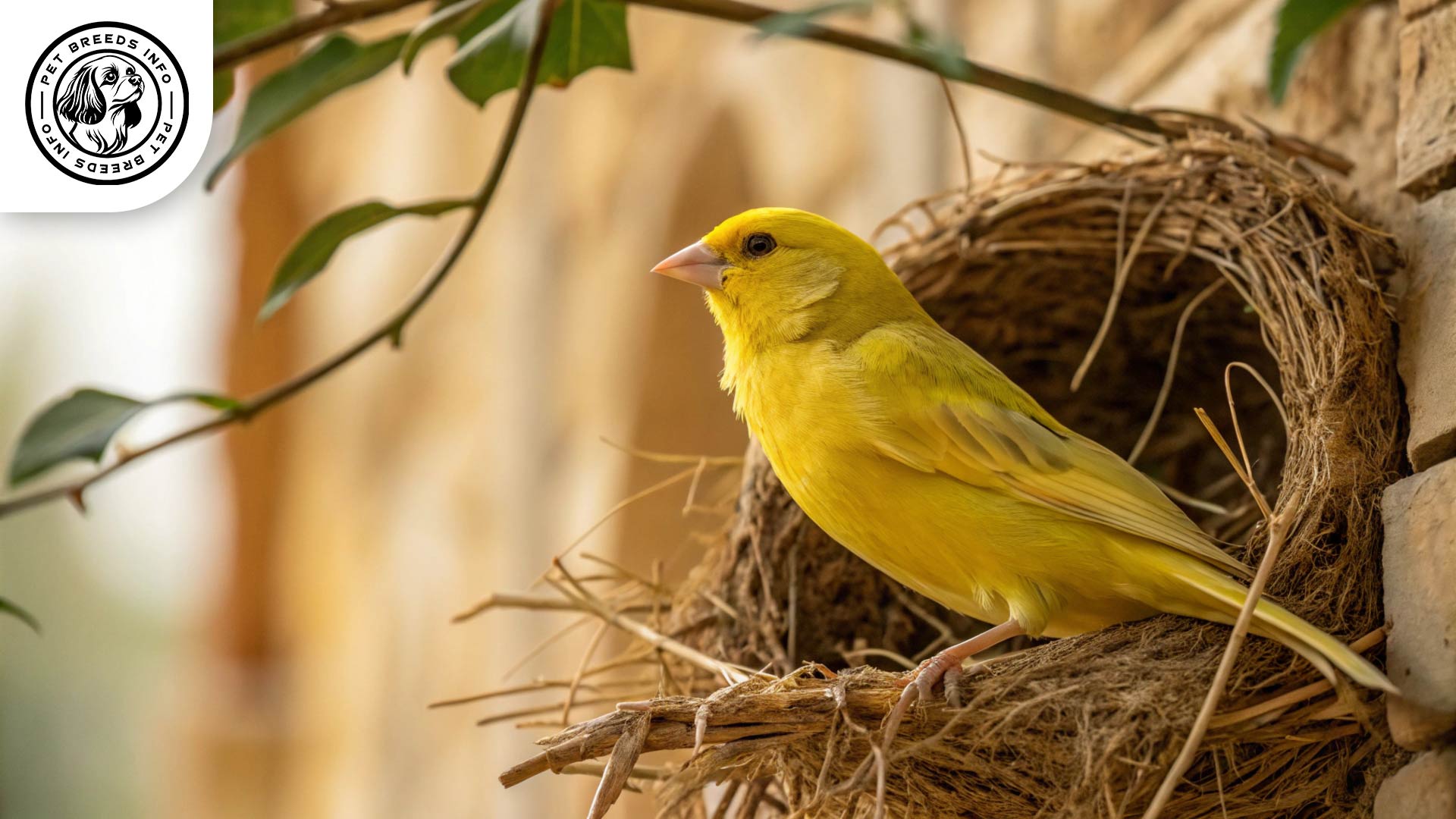
Care and Maintenance Requirements
The Yellow Canary requires a spacious cage or aviary with enough room to fly. It thrives in an environment with natural sunlight and good ventilation. Avoid placing the cage in direct drafts or extreme temperature fluctuations.
Grooming needs include periodic nail trimming and occasional beak monitoring to ensure it does not overgrow. Regular cleaning of the cage is essential to maintain hygiene. Bathing dishes should be provided, as canaries enjoy splashing in water.
This bird is sensitive to extreme cold and excessive heat, so maintaining comfortable indoor temperatures is important.
Diet and Nutrition
A balanced diet for the Yellow Canary includes high-quality canary seed mixes, fresh vegetables, and occasional protein sources such as boiled eggs. Pelleted diets can also be a nutritious staple.
Fruits like apples, pears, and berries can be offered in moderation, but avoid avocado, chocolate, caffeine, and onions, as they are toxic to birds.
Ensuring access to clean, fresh water daily is crucial for their health. Supplements like cuttlebone and mineral blocks can support calcium intake and overall well-being.
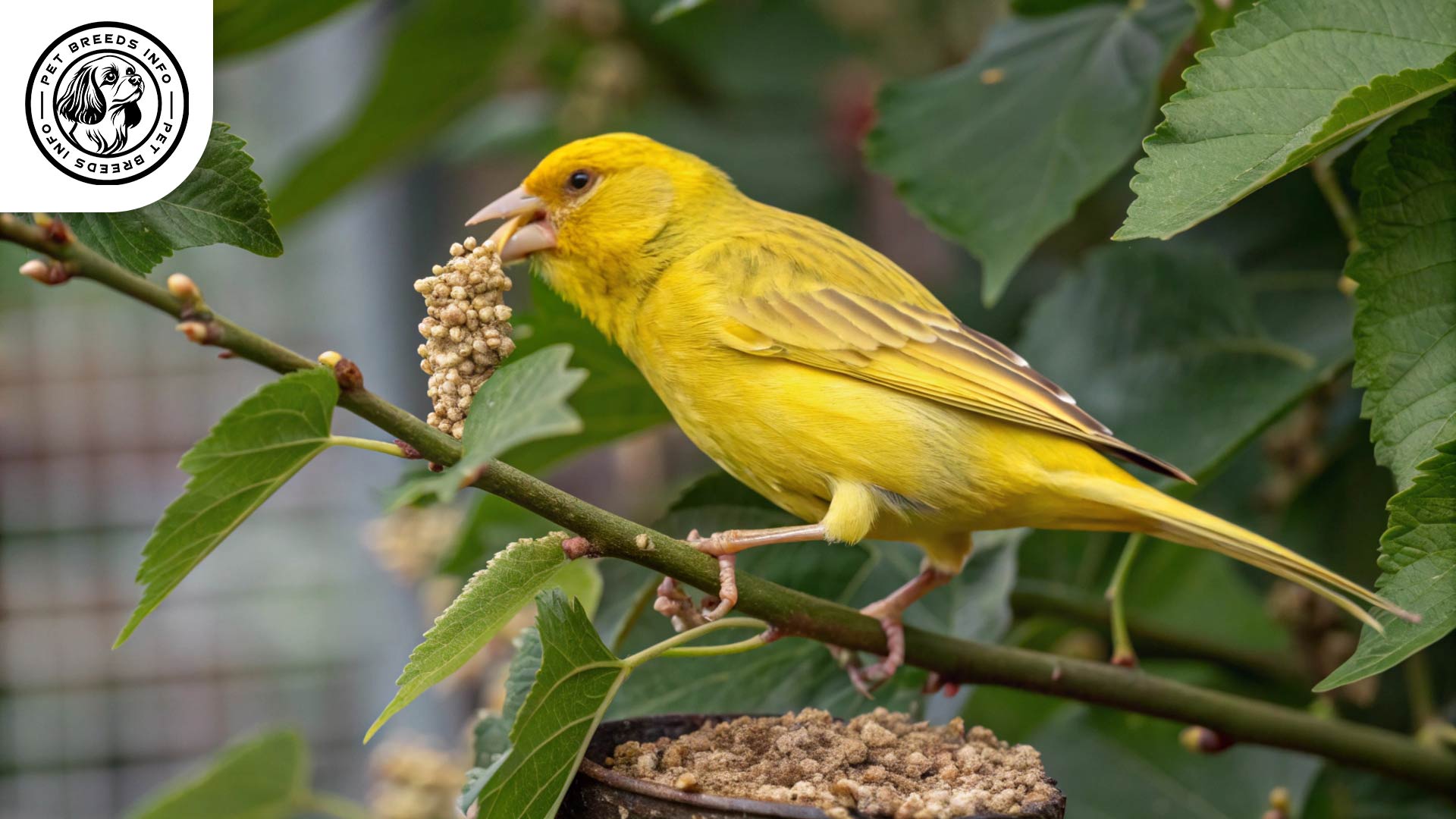
Health and Common Medical Issues
The Yellow Canary is generally a hardy bird but may be prone to respiratory infections, mites, and egg-binding in females. Providing a clean environment and a balanced diet significantly reduces health risks.
Signs of illness include fluffing up feathers, lethargy, difficulty breathing, and reduced vocalization. Regular veterinary check-ups help detect early signs of health concerns.
With proper care, the average lifespan of a Yellow Canary is around 8 to 10 years, though some individuals can live longer in optimal conditions.
Read More: Red Canary Bird
Training and Behavior Management
Yellow Canaries do not require intensive training, but they can learn simple behaviors such as perching on a hand if trained patiently. They respond well to calm handling and consistency.
If housed in a calm and harmonious environment, they maintain their vibrant singing. Negative reinforcement should be avoided, as these birds can become stressed easily.
Early socialization with their caretaker enhances their trust and comfort level, making them more interactive over time.
Interaction with Other Animals and Humans
Yellow Canaries are peaceful birds that can be kept alone or alongside other canaries. However, they do not require companions and can live happily in solitary environments.
They are cautious around larger pets and should not be kept in households with aggressive animals. Children should be taught to observe them rather than handle them frequently.
This breed is best suited for individuals or families who appreciate birds for their melodic singing rather than physical interaction.
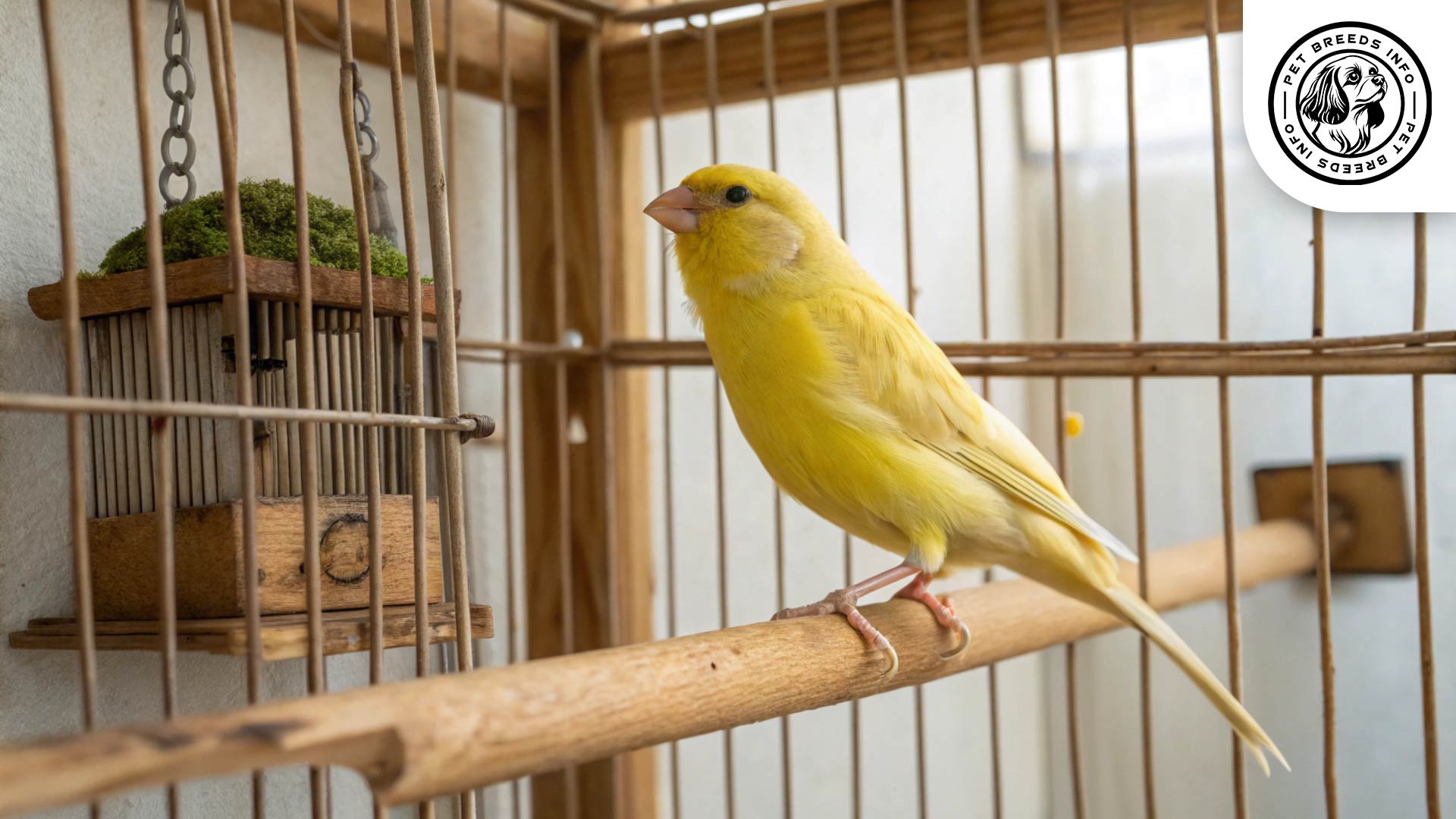
Price and Availability
The cost of a Yellow Canary varies depending on factors such as age, color variations, and breeder reputation, typically ranging between $50 and $150.
Potential owners should purchase from reputable breeders or pet stores that prioritize the bird’s health and well-being. Adopting from bird shelters or rescues is also a great option for those looking to provide a home to a canary in need.
Conclusion and Final Thoughts
The Yellow Canary is an excellent choice for bird enthusiasts looking for a low-maintenance pet with a beautiful singing voice. Its charming personality and ease of care make it suitable for both beginners and experienced bird owners.
This breed thrives in a quiet, stable environment and benefits from attentive but minimal handling. With proper nutrition, living space, and care, a Yellow Canary can bring joy to its owner for many years.
Before bringing a Yellow Canary home, potential owners should consider their ability to provide a clean, well-maintained cage, a suitable diet, and regular veterinary care. In return, they will be rewarded with a delightful companion whose song fills the home with natural beauty.
Read More: Sun Conure Bird
FAQ
What is a Yellow Canary known for?
Yellow Canaries are primarily known for their beautiful bright yellow plumage and their melodious singing ability, especially the males.
Do Yellow Canaries need a lot of interaction?
While they develop familiarity with their owners, Yellow Canaries are not overly dependent and do not typically seek physical interaction like parrots. They are content in their enclosure.
What kind of environment do Yellow Canaries need?
They require a spacious cage with room to fly, natural sunlight, and good ventilation, avoiding direct drafts and extreme temperatures.
What do Yellow Canaries eat?
Their diet should consist of high-quality canary seed mixes, fresh vegetables, occasional protein sources, and access to clean water. Certain fruits can be offered in moderation.
How long do Yellow Canaries typically live?
With proper care, the average lifespan of a Yellow Canary is around 8 to 10 years, and some can live even longer in optimal conditions.
